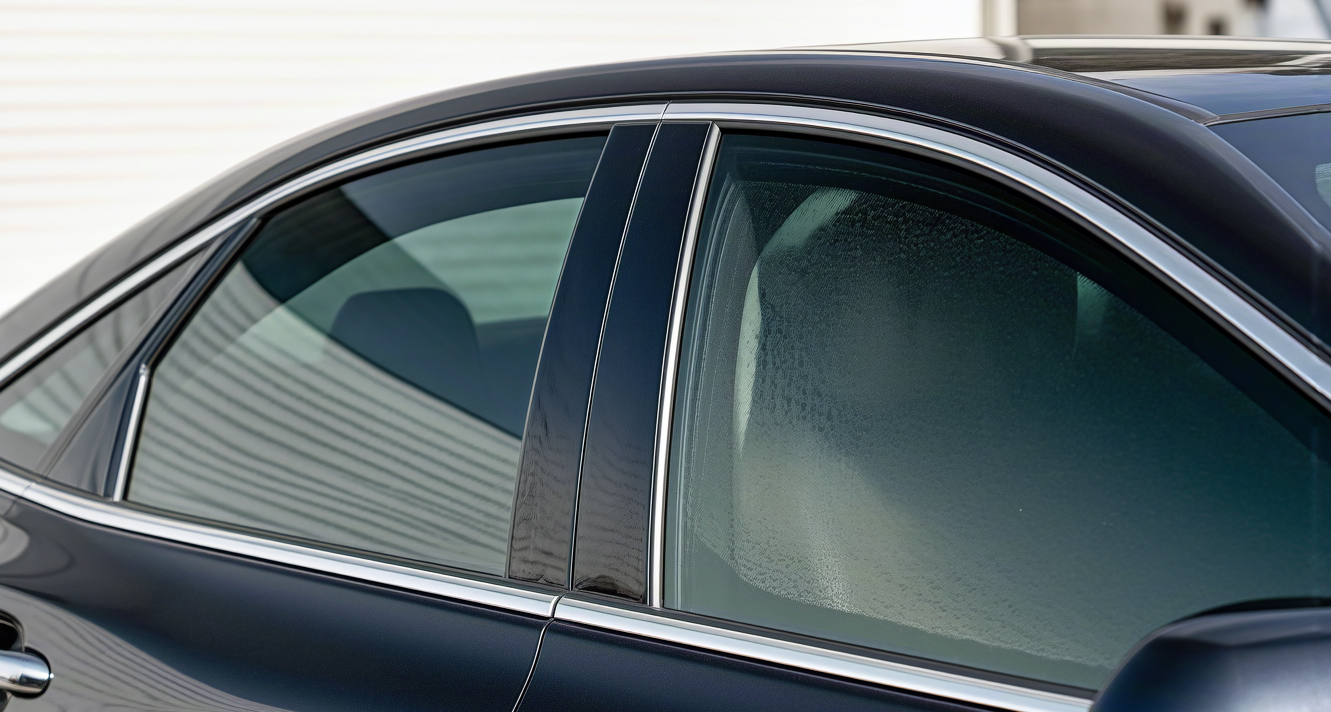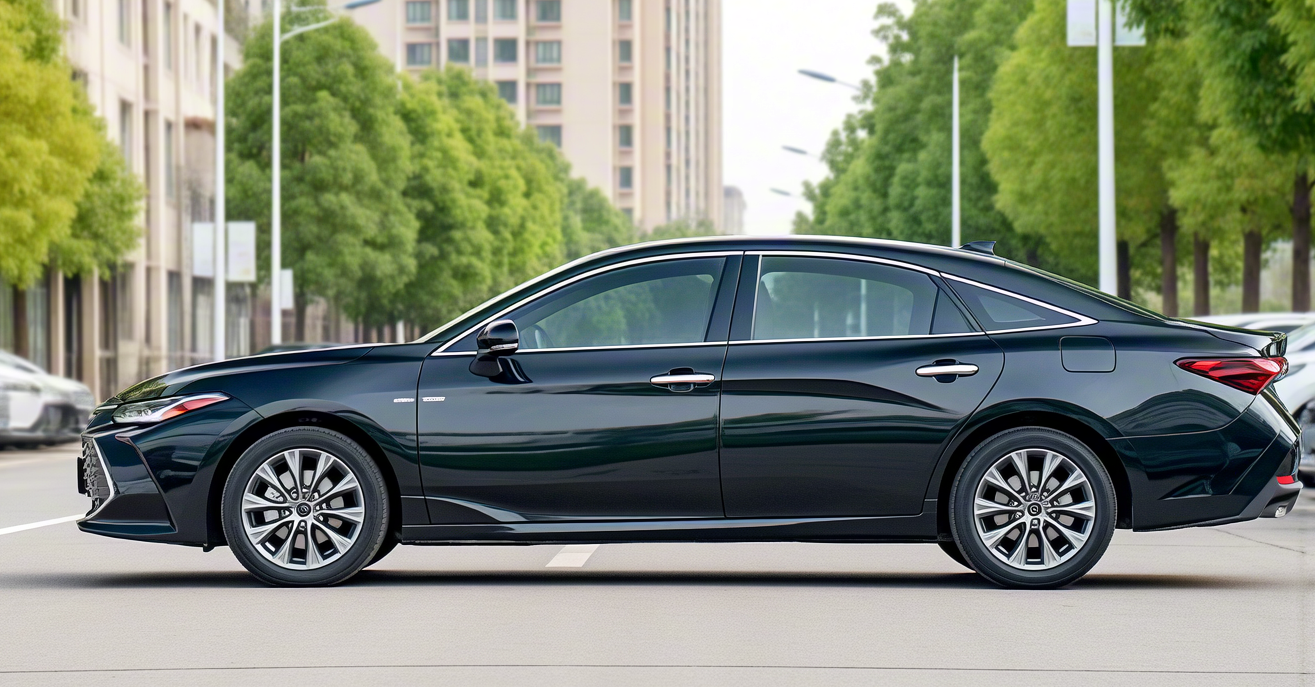Electric vehicles (EVs) are rapidly becoming the preferred choice for many environmentally conscious drivers, valued for their eco-friendly and sustainable nature. As the EV market expands, owners are increasingly interested in upgrades that enhance various aspects of their vehicles, with window tinting being a particularly popular option. Beyond adding a stylish look, window films offer practical advantages like improved thermal regulation, which is crucial for maintaining optimal battery performance in EVs. However, selecting the right window film for an electric car isn’t straightforward. It requires careful consideration of the film’s material properties, adherence to legal standards, and ensuring full compatibility with the vehicle’s advanced features.
I. How Electric Cars Differ: Why Window Tinting Requires Special Attention
The automotive industry has undergone a significant transformation in recent years, with electric vehicles gaining widespread global popularity. Stricter emissions regulations and attractive government incentives have accelerated the shift from internal combustion engine vehicles to EVs. Concurrent advancements in battery technology and growing environmental awareness have made EVs more practical and desirable. Unlike traditional, fuel-guzzling cars, electric vehicles produce zero emissions and offer superior energy efficiency, contributing to a greener future.
As EVs become commonplace, understanding their subtle differences from conventional cars is crucial, especially for modifications like window tinting. While tinting can reduce glare, block harmful UV rays, and enhance privacy, special care must be taken when applying it to EVs. In warm climates, quality window film is a common defense against intense heat. Choosing a high-performance product is vital for maximizing an electric vehicle’s energy efficiency. Properly installed window tint not only improves cabin comfort but also helps manage energy consumption from the climate control system.
Understanding the distinctions between electric and traditional cars, and the specific reasons window tinting requires extra consideration for EVs, empowers consumers to make informed decisions. This ensures they enjoy the full benefits of this modification while properly maintaining their vehicles.
II. Key Factors for Electric Vehicle Window Tint Selection
With the growing prevalence of electric vehicles, several unique factors must be considered when selecting window tint.
- Impact on Battery Efficiency and Range: For EV owners, battery efficiency and driving range are top priorities. The energy required to maintain a comfortable cabin temperature is a key factor affecting both. Effective window film can significantly reduce solar heat entering the cabin, lessening the burden on the air conditioning system. This improves overall energy efficiency and can help extend the vehicle’s range. It’s essential to choose high-quality tint specifically designed for thermal rejection without compromising interior visibility.
- The Crucial Role of Thermal Regulation: Thermal management is indispensable for maintaining battery health and overall vehicle performance. Excessive heat from sunlight can negatively impact an EV’s battery lifespan and charging cycles. High-quality ceramic window films effectively block solar heat, helping keep the cabin cooler. This not only enhances passenger comfort but also can prolong battery life by reducing thermal stress, a critical consideration for EV owners looking to maximize their investment.
- Signal Interference (A Critical EV-Specific Concern): Modern electric vehicles rely heavily on sophisticated electronic systems, including GPS, 5G connectivity, keyless entry, and Advanced Driver-Assistance Systems (ADAS)that often use radar and sensors.
Traditional metallic window films can block or interfere with these signals , causing malfunctions.It is imperative to choose non-metallic, ceramic-based films that offer superior performance without disrupting electronic signals.
III. Tips for Choosing the Right Window Tint for Your Electric Car
Selecting the perfect tint involves balancing performance, legality, and aesthetics.
- Prioritize Non-Metallic, Ceramic Films: To ensure zero interference with your EV’s electronic signals (GPS, mobile, ADAS), avoid traditional metallic tints . Opt for advanced nano-ceramic films which provide exceptional heat rejection without using signal-blocking metals.
- Focus on High Infrared (IR) Rejection: Don’t just look at total solar energy rejection. High Infrared (IR) rejection rates (e.g., ≥95%)are paramount for blocking heat rays, directly impacting cabin temperature and AC load, which in turn affects battery efficiency.
- Ensure Exceptional UV Protection: A quality film should block over 99% of harmful ultraviolet (UV) radiation.This protects both the vehicle’s interior from fading and the occupants’ skin from sun damage.
- Comply with Local Legal Regulations: Always check local laws regarding Visible Light Transmission (VLT) before choosing a tint. Typically, front side windows and the windshield have specific VLT requirements (e.g., often ≥70% VLT for windshields) to ensure driver visibility and safety.
Don’t Compromise on Quality and Installation : While cheaper options may be tempting, high-quality films are more resistant to fading, bubbling, and peeling, offering better long-term durability and performance. Furthermore, professional installation by experienced technicians is non-negotiable. Even the best film will underperform if installed incorrectly. Reputable installers often provide a warranty for their work .
IV. Summary
As electric vehicles continue to rise in popularity, understanding their unique requirements for window tinting becomes increasingly important. The right window film can significantly enhance an EV’s energy efficiency by reducing thermal load, thereby supporting better battery performance and driving range.Furthermore, selecting a high-quality, non-metallic (ceramic) heat-rejection film is crucial for regulating cabin temperature, reducing AC usage, contributing to battery longevity, and ensuring the vehicle’s sophisticated electronics function flawlessly. By carefully considering these factors, EV owners can make an informed choice that ensures their vehicle performs optimally, remains comfortable, and retains its value and functionality.
Ready to find the perfect tint for your electric vehicle? Consult with a professional window tint installer who has experience with EVs. They can guide you toward certified, high-performance films that meet all legal requirements and protect your investment.








